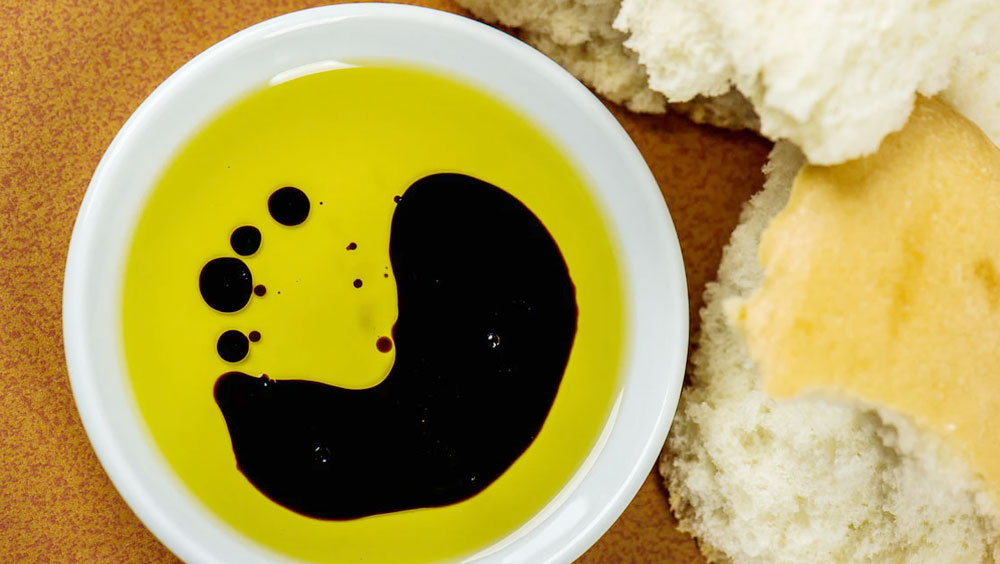Balsamic vinegar, known for its rich flavor and dark color, is more than just a tasty addition to salads and marinades. This ancient condiment offers numerous health benefits, making it a valuable addition to your diet. In this article, we will explore the various health benefits of balsamic vinegar and how you can incorporate it into your daily meals.
Rich In Antioxidants

Balsamic vinegar is packed with antioxidants, particularly polyphenols. These compounds help fight free radicals in the body, reducing oxidative stress and lowering the risk of chronic diseases. Regular consumption of balsamic vinegar can help protect your cells from damage and support overall health.
Supports Heart Health

One of the most significant benefits of balsamic vinegar is its positive impact on heart health. The antioxidants in balsamic vinegar can help reduce the risk of heart disease by lowering cholesterol levels and improving blood circulation. Additionally, the vinegar’s anti-inflammatory properties can help maintain healthy blood vessels and reduce the risk of cardiovascular problems.
Aids In Digestion

Balsamic vinegar can aid digestion by stimulating the production of digestive enzymes. This helps break down food more efficiently and improves nutrient absorption. Moreover, balsamic vinegar has been traditionally used to relieve indigestion and heartburn, making it a natural remedy for digestive issues.
Helps Control Blood Sugar Levels

Studies have shown that balsamic vinegar can help regulate blood sugar levels. The acetic acid in balsamic vinegar slows down the digestion of carbohydrates, preventing spikes in blood sugar after meals. This makes balsamic vinegar a beneficial addition to the diet of individuals with diabetes or those looking to maintain stable blood sugar levels.
Promotes Weight Loss

Incorporating balsamic vinegar into your diet can aid in weight loss. The acetic acid in balsamic vinegar helps reduce appetite and increase feelings of fullness, which can lead to reduced calorie intake. Additionally, balsamic vinegar is low in calories, making it a healthy alternative to high-calorie dressings and sauces.
Boosts Immune System

The antioxidants and antimicrobial properties of balsamic vinegar can boost your immune system. Regular consumption can help your body fight off infections and stay healthy. Balsamic vinegar’s antibacterial properties can also promote good oral health by reducing harmful bacteria in the mouth.
Improves Skin Health

Balsamic vinegar can also benefit your skin. The antioxidants in balsamic vinegar help reduce signs of aging by fighting free radicals that cause skin damage. Its anti-inflammatory properties can also help soothe skin conditions and promote a healthy complexion. Applying diluted balsamic vinegar topically can help improve skin texture and clarity.
Reduces Hypertension

Research suggests that balsamic vinegar can help lower blood pressure. The polyphenols in balsamic vinegar help dilate blood vessels and improve blood flow, contributing to reduced hypertension. Including balsamic vinegar in your diet can be a natural way to support healthy blood pressure levels.
Enhances Bone Health

Balsamic vinegar contains acetic acid, which can help improve calcium absorption. This is beneficial for bone health, as calcium is essential for maintaining strong bones and preventing osteoporosis. Incorporating balsamic vinegar into your meals can help support bone density and overall skeletal health.
How To Incorporate Balsamic Vinegar Into Your Diet

Adding balsamic vinegar to your diet is easy and delicious. Use it as a salad dressing, mix it into marinades, or drizzle it over roasted vegetables and grilled meats. You can also use balsamic vinegar to add a tangy flavor to soups, sauces, and even desserts. Experiment with different recipes to enjoy the health benefits of this versatile ingredient.


